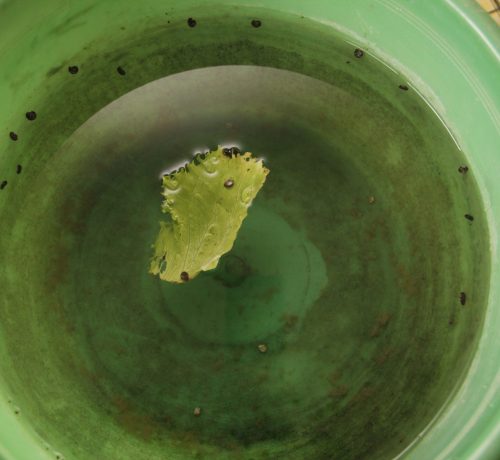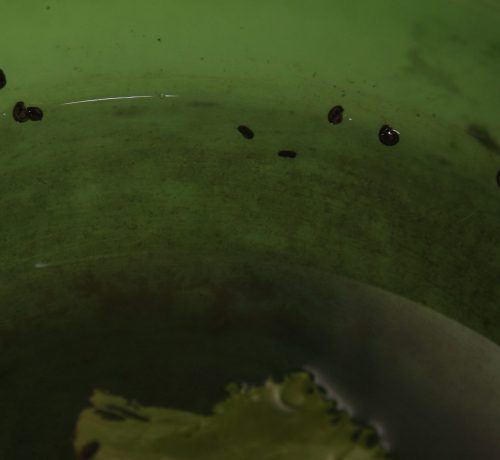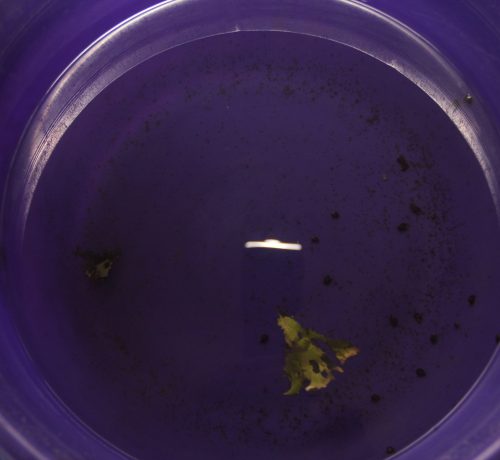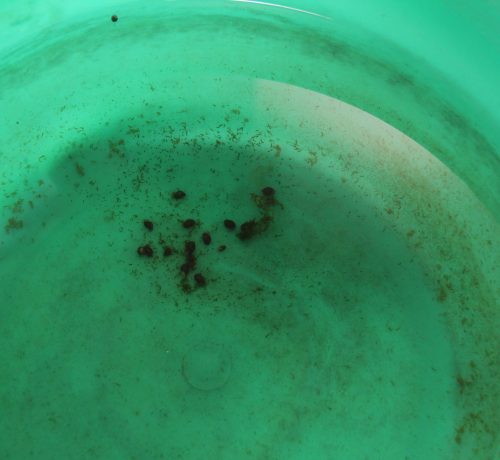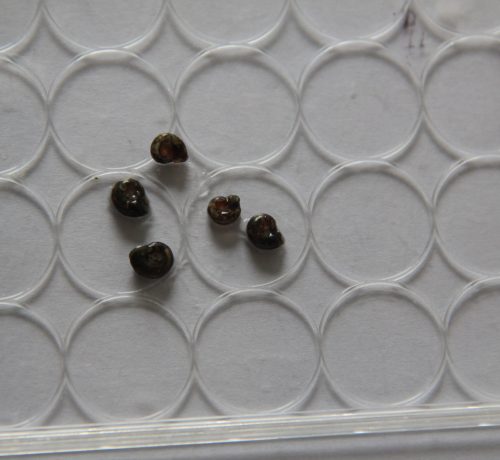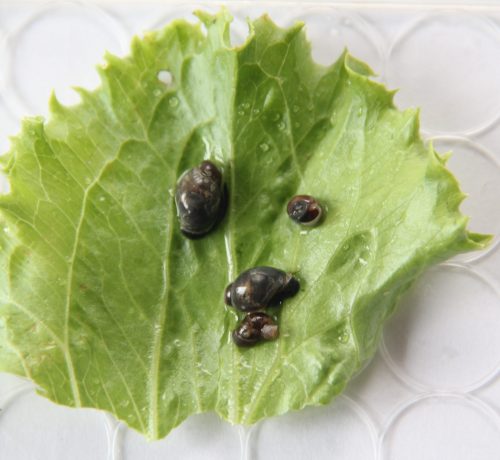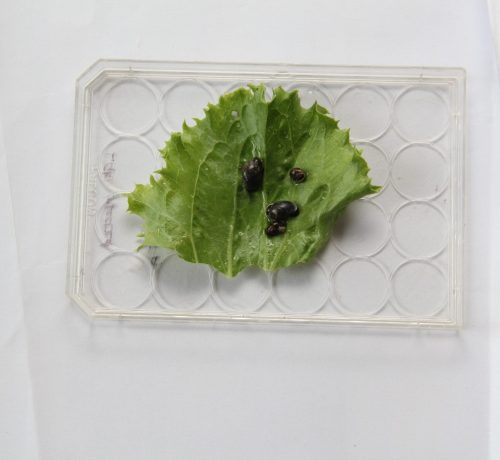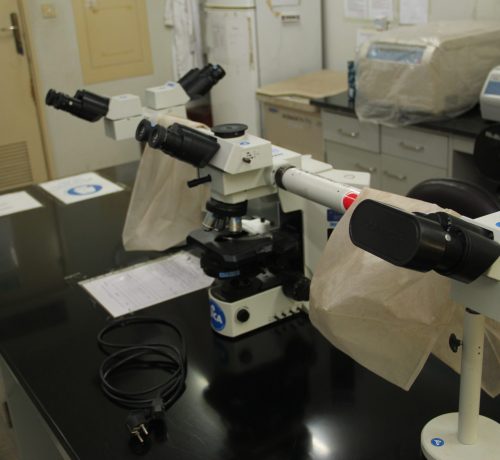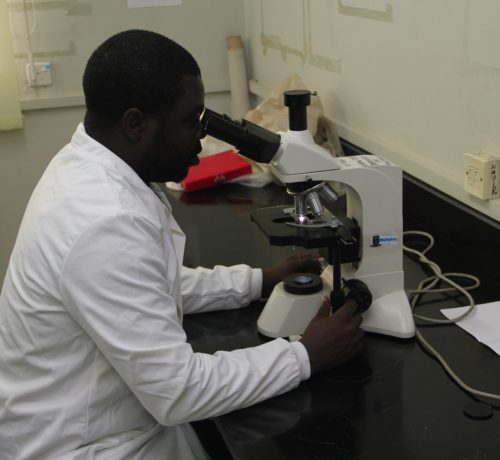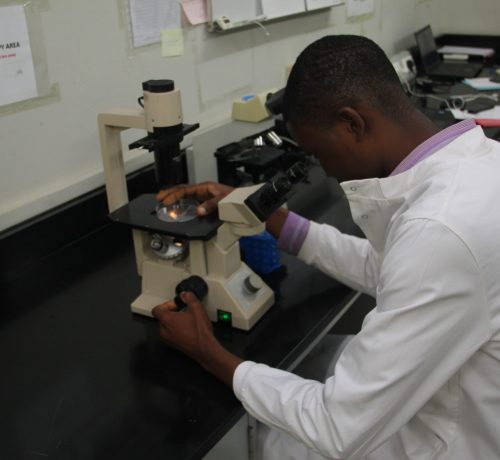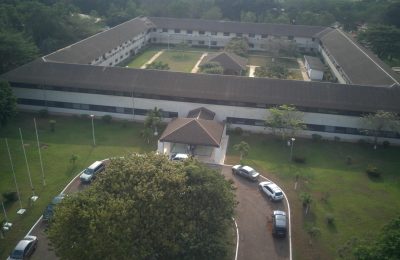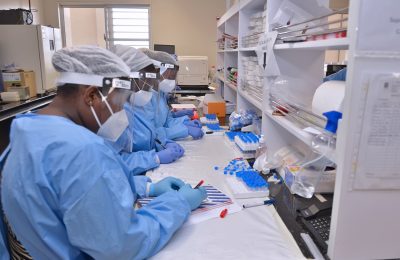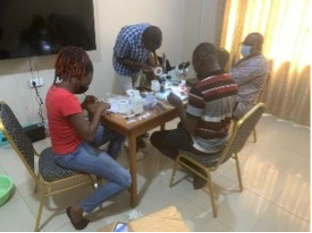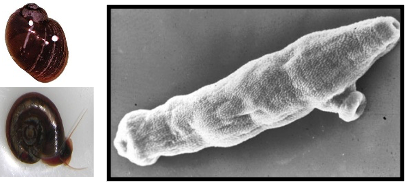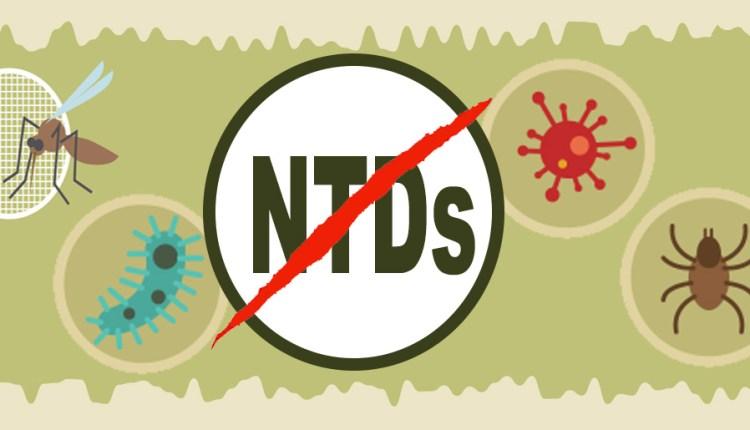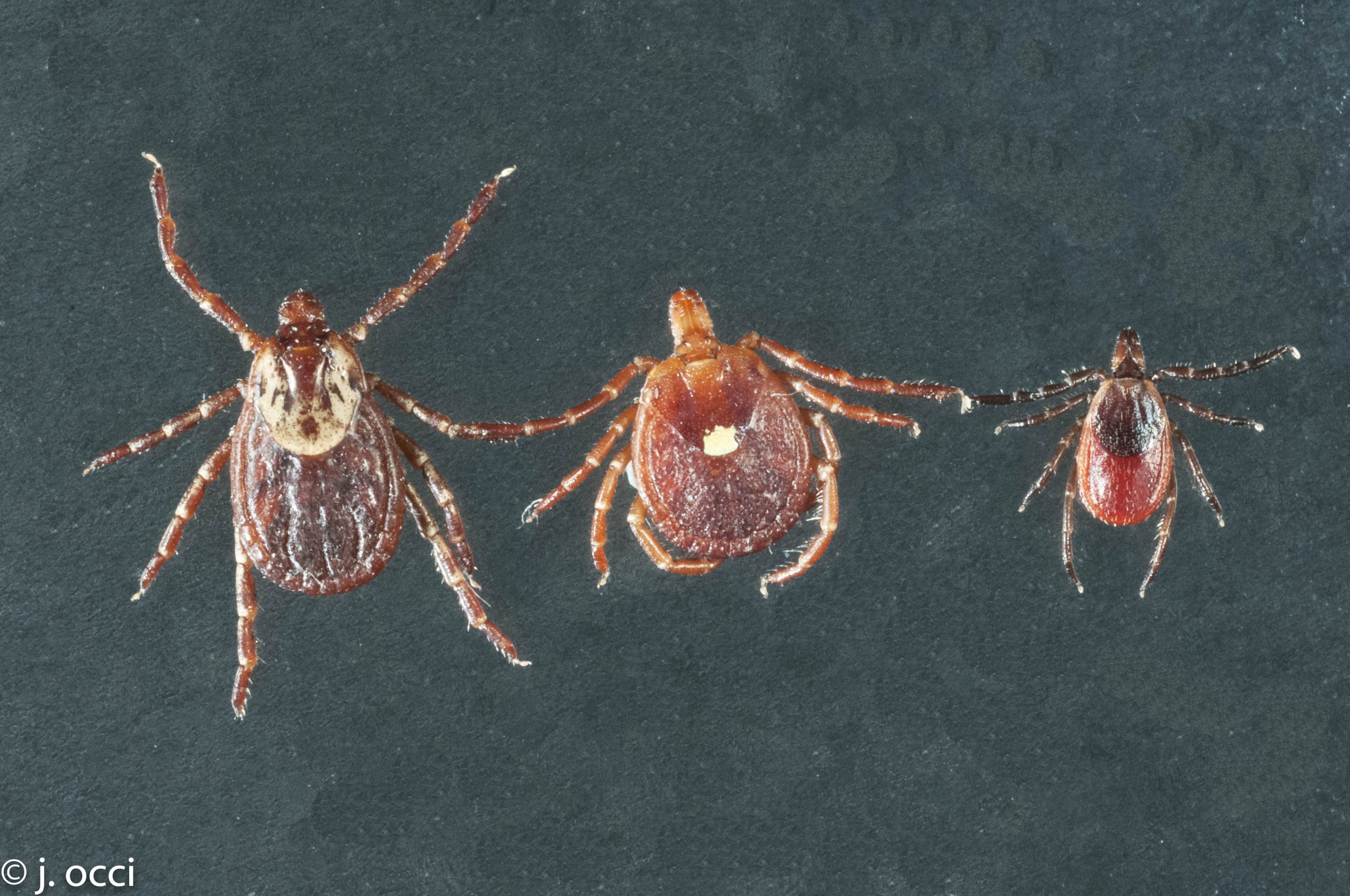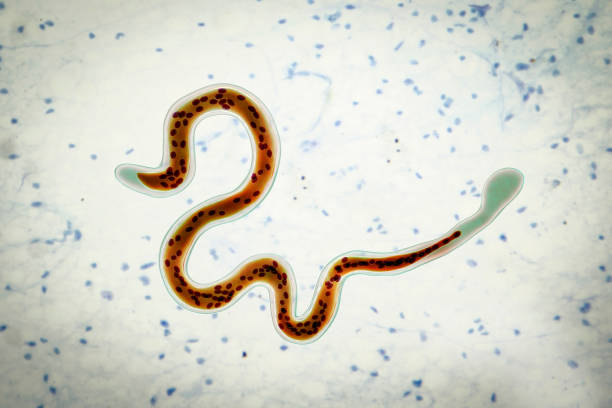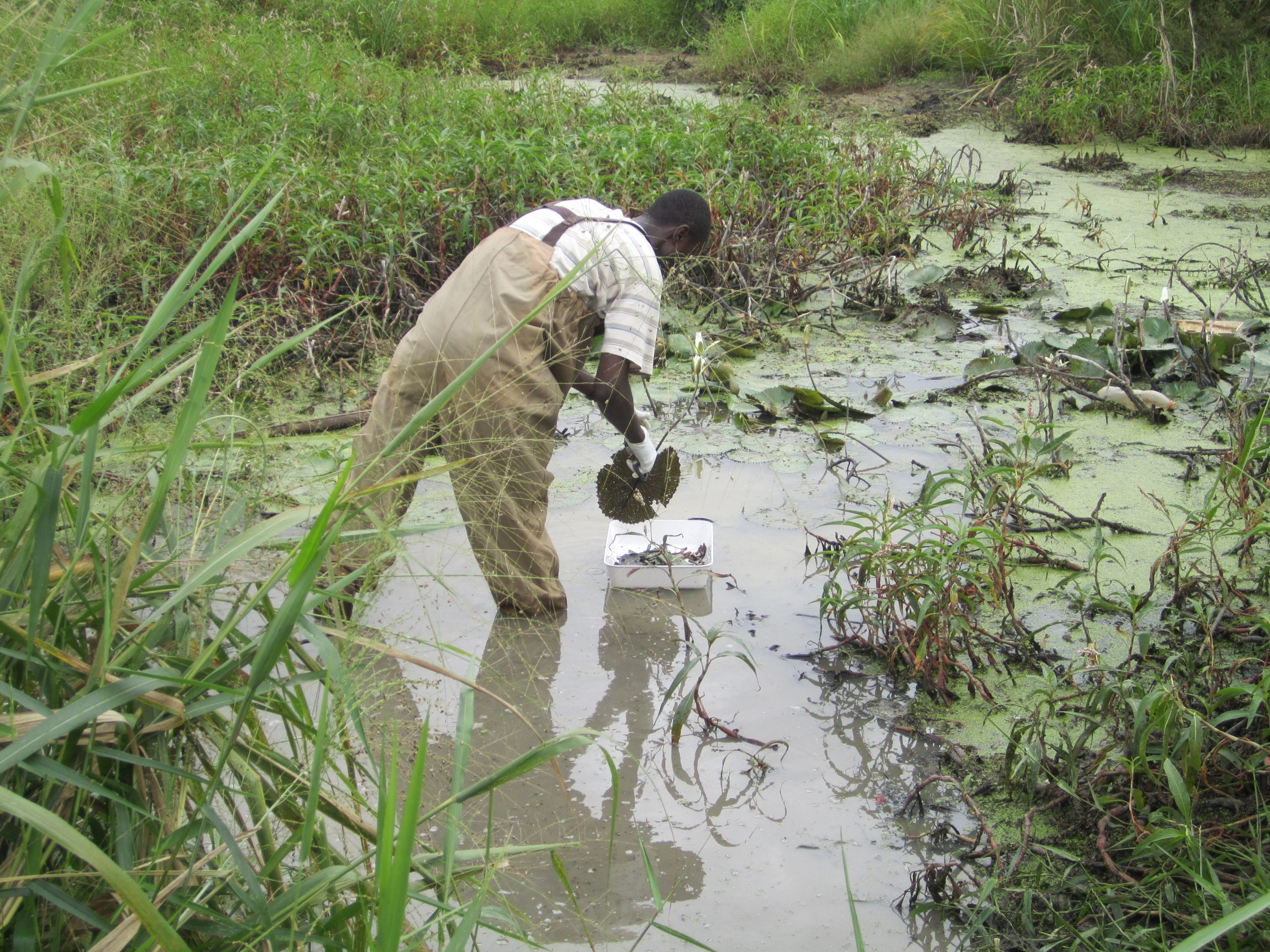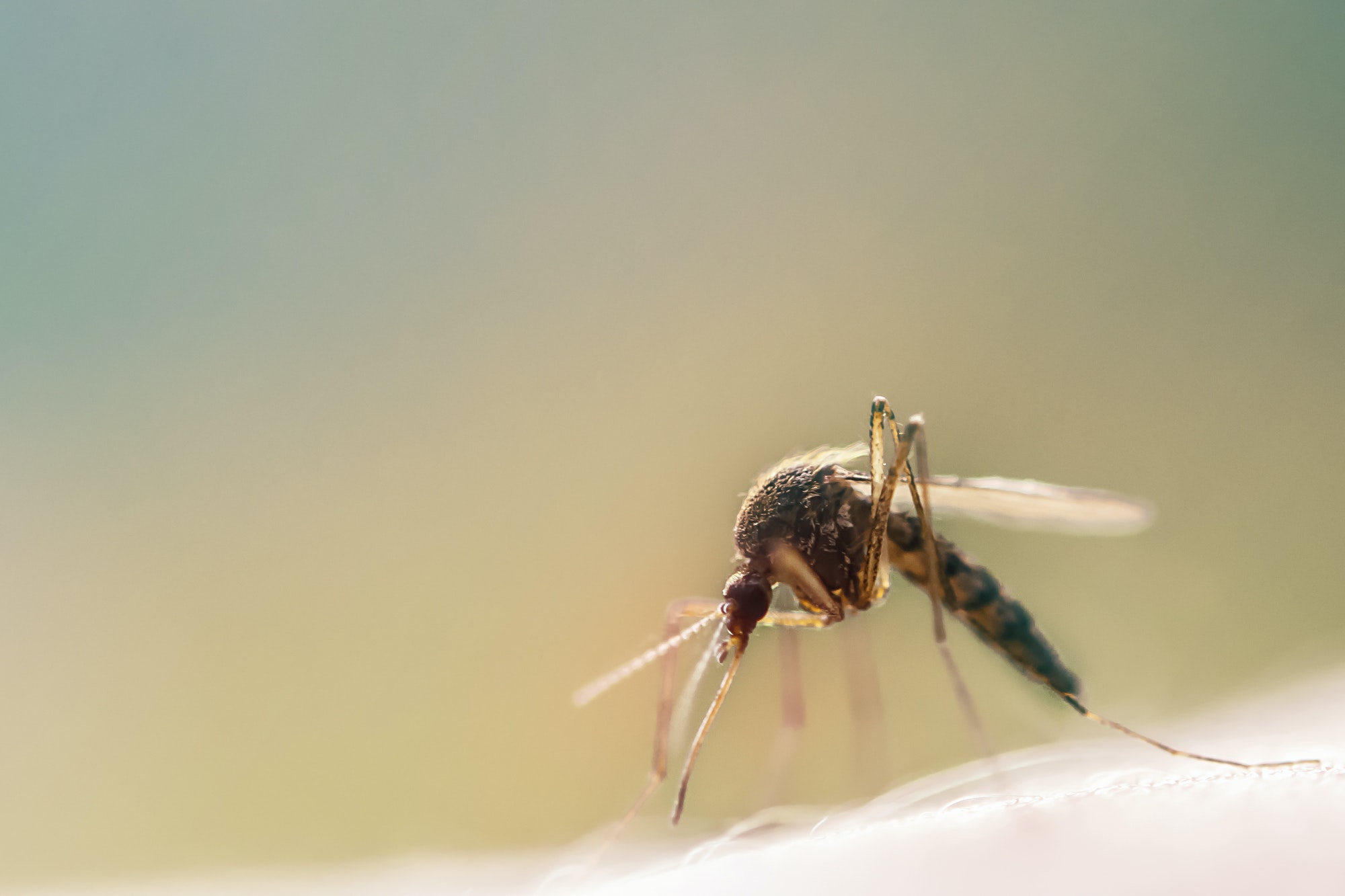Parasitology
- Home
- Parasitology
The Department of Parasitology of the Noguchi Memorial Institute for Medical Research (NMIMR) conducts research into parasitic diseases of public health importance and is a center of excellence for teaching and research. We are a large, multidisciplinary department whose scientific activities are fully integrated into the vision of the NMIMR, the College of Health Sciences, and the University of Ghana. Our overall goal is to reduce transmission and the heavy disease burden parasitic infections impose on affected populations.
We achieve this goal by applying best practice, understanding and developing the science underpinning best practice, and by embedding an education program in the biomedical sciences that deliver the best research scientists. We are ISO 9001:2015 certified and ISO 15189:2012 SLIPTA recognized and implement a very vibrant Laboratory Quality Management System.
Our core research currently is into major diseases such as malaria, and others listed under the Neglected Tropical Diseases (NTD) control initiative such as lymphatic filariasis, onchocerciasis, schistosomiasis, soil-transmitted helminthiasis, trypanosomiasis, and leishmaniasis. We also research parasite implicated diseases in reproductive health (e.g., toxoplasmosis) and diarrhoeal diseases (e.g., cryptosporidiosis and amoebiasis). Due to our strength in vector biology, we have a strong vector biology research strategy that extends into non-parasitic suspected vector-borne infections such as Buruli ulcers. Our research strategy is collaborative and managed by specialized research groups:
Expertise and techniques available in the Department include Morpho-taxonomy, Cyto-taxonomy, Immune-diagnosis, Proteomics, Gene cloning, Sequencing, Bioinformatics, Phase 2 and 3 testing of vector control products, Geographic Information Systems (GIS), Development and use of Information Education Communication (IEC) as well as Behaviour Change Communication (BCC) in the control of parasitic diseases. We also offer Specialized Clinical Diagnostic Services. The Department also houses the Lymphatic Filariasis Support Center for Africa (LFSCA), the Vestergaard – NMIMR Laboratories and Insect breeding and testing facility, the Naval Medical Research Unit (NAMRU) and West Africa Center for Integrated Parasite Control (WACIPAC).
We maintain and develop research excellence in basic and applied biomedical training in this strong scientific foundation. With a STAFF strength of over 40, we offer post-graduate, experiential learning, and intern training programs.
Our Contact
Department of Parasitology, NMIMR, University of Ghana, P. O. Box LG 581, Legon.
Gallery
